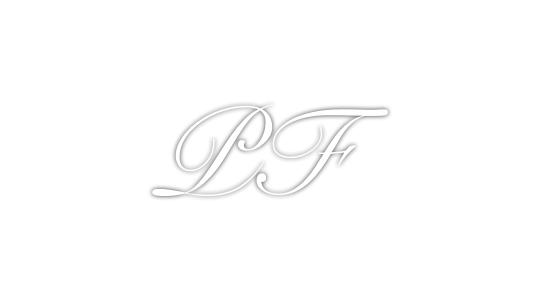04/18/21
 Miracles and Science
Miracles and Science In today’s lesson we talk about miracles: what they are, are they possible, and do they happen? How is the idea of a miracle often misunderstood? What are various kinds of unusual events and what makes a miracle different? Who were some key figures in shaping our modern ideas about miracles? What are the most common objections to miracles and how can we as Christians answer those objections? Why is it unhelpful to think of a miracle as a violation of the laws of nature? Why is it unnecessary to insist on some kind of “extraordinary” evidence to believe a miracle occurred?
Lesson 29:
Review QuestionsLesson 29:
Lesson NotesTags: Science, Miracles, Hume, Paley, Spinoza, Keener
04/11/21
 The Origin of Humans
The Origin of Humans In this lesson we focus in on a particularly important aspect of the evolution/creation question—where do humans come from? Why is this issue especially important to the Christian faith? What does contemporary evolutionary theory teach about human origins? What is the evidence they give for such a view? What is the actual status of the evidence for human evolution, and what are the difficulties that the prospect of human evolution from chimpanzees faces? We also talked about the Intelligent Design hypothesis and what it proposes and why many scientists oppose it. What is the difference between Intelligent Design and the “Design Argument?” What place does Intelligent Design play in the role of the Christian Apologist? (51 min)
Lesson 28:
Review QuestionsLesson 28:
Lesson NotesHandout:
The Uniqueness of HumansTags: Human, Evolution, Darwinism, Intelligent Design
04/04/21
 The Origin of the Species
The Origin of the Species In this lesson we consider the subject of evolution and the origin of the variety of biological life. What is evolution? How is neo-Darwinism different from Darwinism? What do many scientists consider to be the two primary kinds of biological evolution? Why do some scientists object to that distinction? What is meant by the "edge of evolution?" What are some of the daunting challenges faced by Neo-Darwinism that leads to the claim that it is a theory "in crisis?" How does the problem of homeostasis counter evolution’s claims? How does the reality of complexity and new information challenge Darwinian concepts of evolution? What is “devolution?” What are the various ways that Christians view the subject of evolution? (72 min)
Lesson 27:
Review QuestionsLesson 27:
Lesson NotesTags: Origin, Species, Evolution, Darwinism, Creation
03/28/21
 The Origin of Life
The Origin of Life In this lesson we continue our consideration of origins by looking at the subject of the origin of life. What does the Bible teach us about the origin of life? What does Darwinism have to say about the origin of life? What are the great questions about the origin of life which any explanation must answer? What are some of the obstacles to life originating from non-living matter? Why do efforts to spontaneously create amino acids or to explain their assembly into proteins still leave the big questions regarding life unanswered? What is our universal and repeated experience regarding the source of information? What is the “chicken or the egg” problem? Even if one were able, against all odds, to get the necessary elements for a living cell from non-living matter, why would that still be an apparently insurmountable distance from having a living organism?
Lesson 26:
Review QuestionsLesson26:
Lesson NotesTags: Origin, Life, Abiogenesis, Information, Darwinism
03/21/21
 The Origin of the Cosmos
The Origin of the Cosmos This is the first of several lessons on the subject of origins.Today’s lesson is on the origin of the universe. How can we who are not cosmologists or physicists discuss these kinds of scientific issues with people? How did the Hebrew and Christian view of the cosmos differ from everyone else’s throughout history? What major scientific discoveries in the twentieth century revolutionized the way science viewed the cosmos? What important implications are inherent in the new understanding of the expansion of the universe? What is the singularity or boundary? Why is it impossible for science to address the question of what was “before” the singularity? What is the Standard Model of the Big Bang? What has been the result of the attempts to come up with alternate scientifically satisfactory models to the Standard Model? What are the two kinds of causes or explanations for events? Which kind cause or explanation is necessary beyond the boundary? Why is a quantum vacuum spontaneous generation of the universe, the so called “free lunch,” not possible?
Lesson 25:
Review QuestionsLesson 25:
Lesson NotesTags: Cosmos, Origin, Universe, Creation, Big Bang
03/14/21
 Understanding Science
Understanding Science In today’s lesson we began our study of questions of science that arise in apologetics by seeking to get a general view of science and its relationship to the Christian faith. Can a person who is not a trained and degreed scientist address questions related to science? What is science? What are the foundations upon which all scientific endeavor rests? What, if any, are the limits of science? What is scientism? What are two kinds of scientism and what are the fatal flaws of each? How does the Bible address the subject of science, if at all? Why do many people believe that Christianity has historically been opposed to science? What has been Christianity’s actual relationship to science in history? What does Alvin Plantinga say is the real conflict regarding science is? (61 min)
Lesson 24:
Review QuestionsLesson 24:
Lesson NotesHandout:
Quotes and AssumptionsTags: Science, Philosophy of Science, History of Science, Scientism
